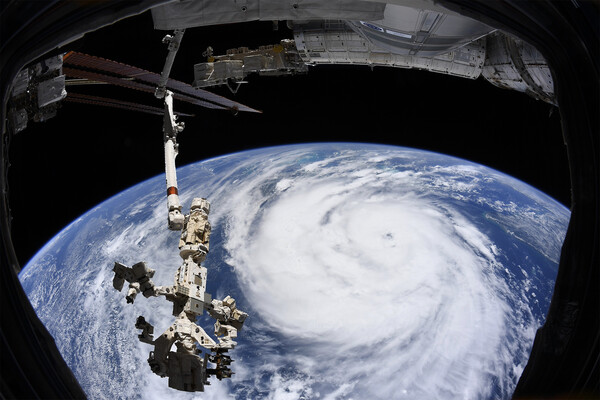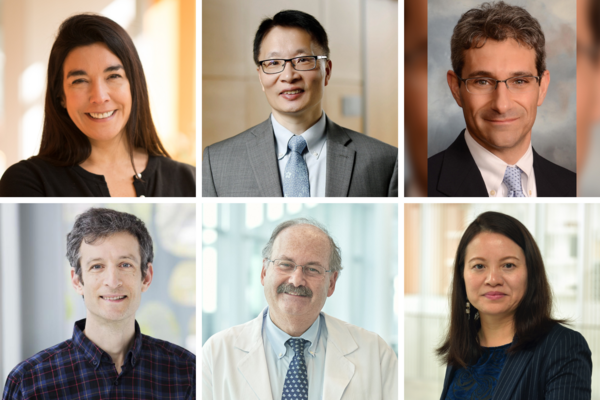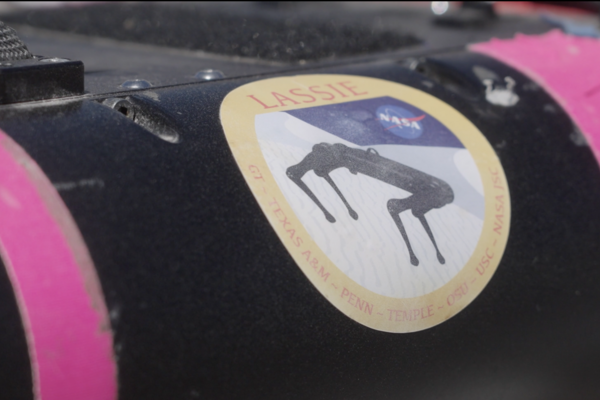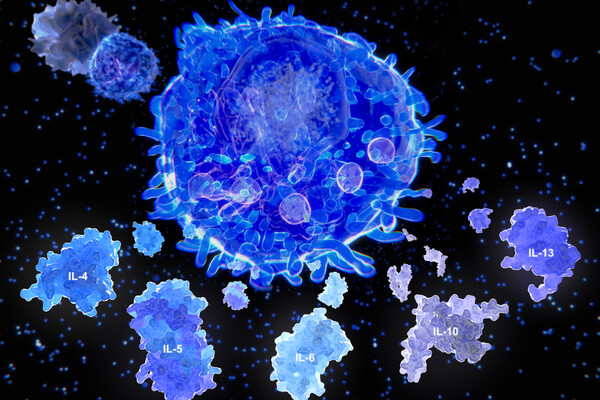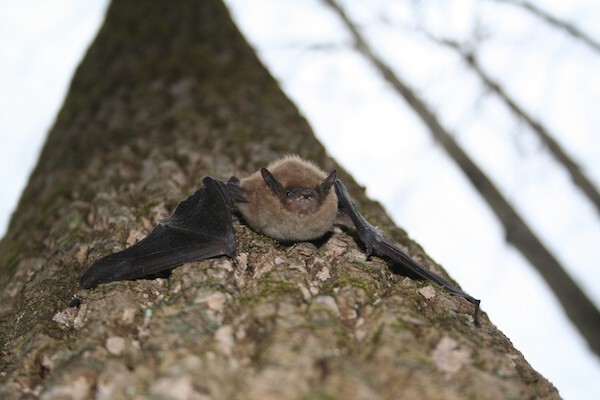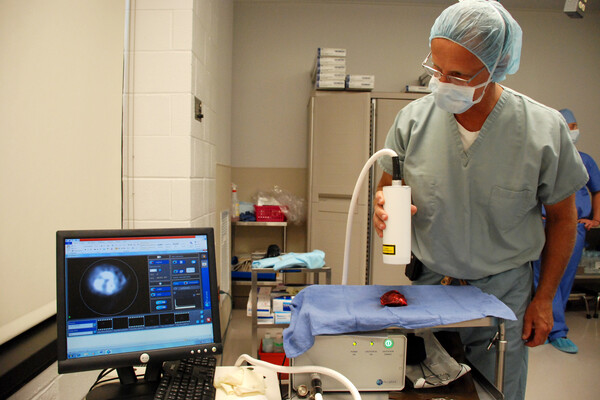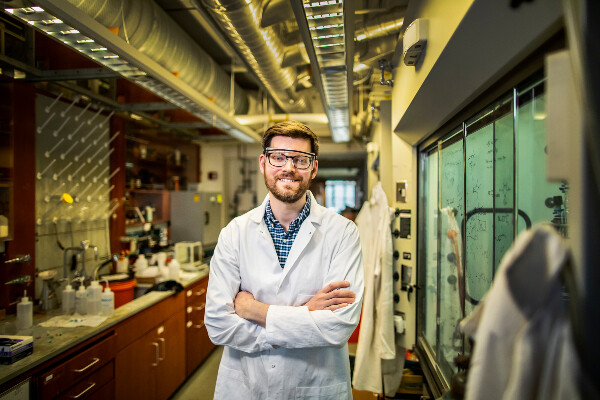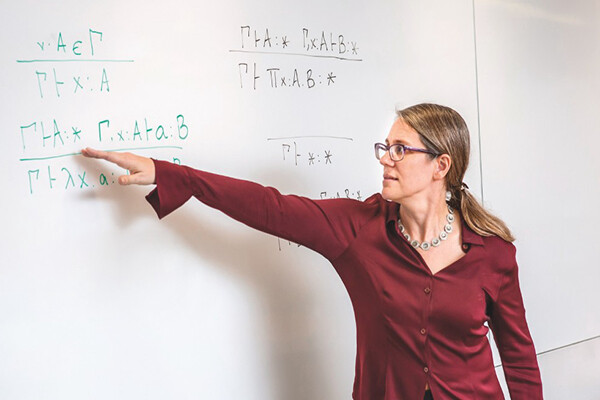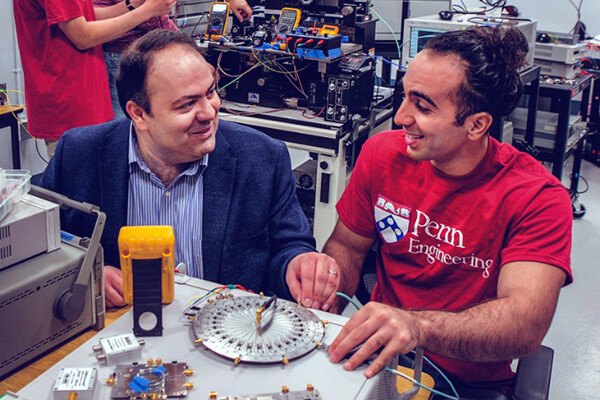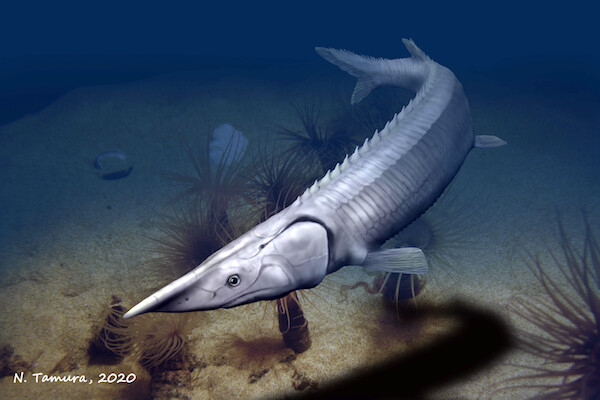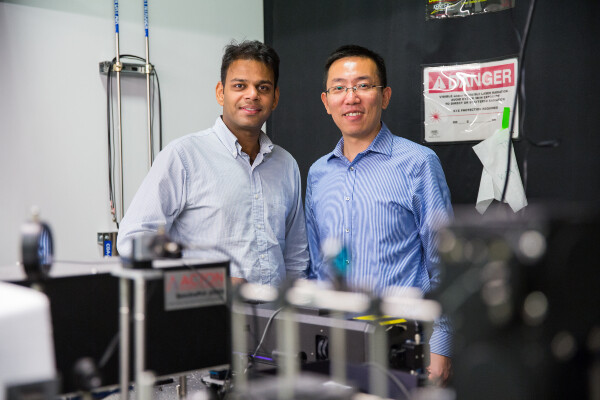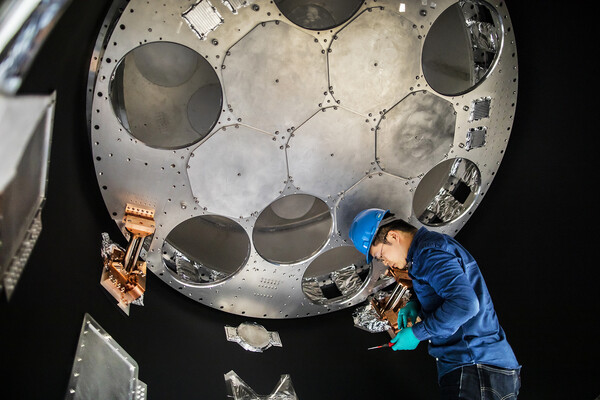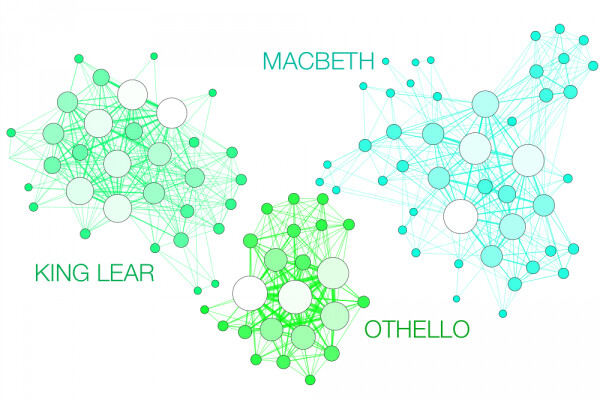4/22
Science & Technology
Navigating cytokine storms
Pairing their expertise, Nilam Mangalmurti of the Perelman School of Medicine and Christopher Hunter of the School of Veterinary Medicine have been working to understand the protective and harmful aspects of the immune response, including in COVID-19.
Bats and COVID
A new study from Penn Vet's New Bolton Center tests the guano of North American bats currently in Pennsylvania wildlife rehabilitation centers for the presence of COVID-19.
Glowing dye may aid in eliminating cancer
In dogs with mammary tumors, researchers from the School of Veterinary Medicine and Perelman School of Medicine used a substance that glows under near-infrared light to illuminate cancer.
Reviving ‘old school’ chemistry to tackle the energy crisis
In the lab of Neil Tomson, chemists tackle the complex challenges of catalysis while gaining firsthand experience in science outreach and communication.
Engineering’s Stephanie Weirich designs tools for a safer world
Stephanie Weirich, ENIAC President’s Distinguished Professor in Computer and Information Science, aims to make software systems more reliable, maintainable, and secure.
Engineering’s Firooz Aflatouni’s electronic-photonic innovations
Firooz Aflatouni has built his career on designing clever combinations of electronic and photonic technology with applications from laser-based 3D imaging, to microwave “cameras.”
300-million-year-old fish resembles a sturgeon but took a different evolutionary path
Tanyrhinichthys mcallisteri recasts the notion of what it means to be a “primitive” vertebrate, according to paleontologists Lauren Sallan and Jack Stack.
Novel ways to store data in light waves
A pair of studies from Penn Engineering provides new ways to increase information density in optical communications, paving the way for a massive increase in the bandwidth of fiber optic networks.
Additional challenges in bringing research online
As research on campus slowly restarts, those whose work requires field surveys, large-scale collaborations, or travel face additional challenges in bringing their research back online.
What do ‘Bohemian Rhapsody,’ ‘Macbeth,’ and a list of Facebook friends all have in common?
To an English scholar or avid reader, the Shakespeare Canon represents some of the greatest literary works of the English language. To a network scientist, Shakespeare’s 37 plays and the 884,421 words they contain also represent a massively complex communication network.
In the News
Here’s why experts don’t think cloud seeding played a role in Dubai’s downpour
Michael Mann of the School of Arts & Sciences says that many people blaming cloud seeding for Dubai storms are climate change deniers trying to divert attention from what’s really happening.
FULL STORY →
Can we stop AI hallucinations? And do we even want to?
Chris Callison-Burch of the School of Engineering and Applied Science says that auto-regressive generation can make it difficult for language learning models to perform fact-based or symbolic reasoning.
FULL STORY →
“Record-shattering” heat wave in Antarctica — yep, climate change is the culprit
Michael Mann of the School of Arts & Sciences says that persistent summer weather extremes like heat waves are becoming more common as people continue to warm the planet with carbon pollution.
FULL STORY →
How the solar eclipse will affect solar panels and the grid
Benjamin Lee of the School of Engineering and Applied Science says that the electrical grid will have to figure out how to match supply and demand during brief windows where the energy source goes away.
FULL STORY →
Scientists struggle to explain ‘really weird’ spike in world temperatures
Michael Mann of the School of Arts & Sciences says that tendencies to exaggerate climate science in favor of “doomist” narratives helps no one except the fossil fuel industry.
FULL STORY →
Spring is here very early. That’s not good
Michael Mann of the School of Arts & Sciences says that plant-flowering, tree-leafing, and egg-hatching are all markers associated with spring that are happening sooner.
FULL STORY →
Can your personal medical devices be recycled?
A lab at the School of Engineering and Applied Science led the development of a COVID test made from bacterial cellulose, an organic compound.
FULL STORY →
Could Florida electric bills go up because of a fuel made from manure?
Danny Cullenward of the Kleinman Center for Energy Policy at the Weitzman School of Design says that federal and California state subsidies have led to a gold rush of companies trying to get into the business of renewable natural gas around the country.
FULL STORY →
Pa. environmental, religious and other groups criticize Shapiro plan for ignoring climate change
A study by the Kleinman Center for Energy Policy at the Weitzman School of Design found that Pennsylvania would benefit overall from joining the Regional Greenhouse Gas Initiative.
FULL STORY →
Why don’t we just ban fossil fuels?
Joseph Romm of the School of Arts & Sciences says that stronger action against fossil fuels is essential to save the planet.
FULL STORY →




